2025 winners
IET Postgraduate Scholarship for an outstanding researcher
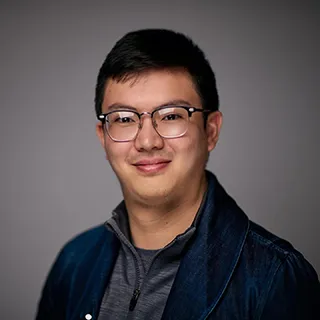
Victor Choi
University of Oxford
Victor Choi is a DPhil candidate jointly in the University of Oxford’s Department of Engineering Science and Nuffield Department of Orthopaedics, Rheumatology and Musculoskeletal Science. He is pioneering a novel solution to combat chronic antibiotic-resistant infections.
Working within the Beyond Antibiotics programme, his doctoral research has engineered antibiotic-loaded nanoparticles that, when activated by ultrasound, can explode to rupture biofilms and deliver antibiotics directly to the infection site. This targeted approach has reduced the required antibiotic concentration by over 40-fold, eliminating bacteria at clinically feasible doses.
This promising technology offers a potential breakthrough against the global crisis of antimicrobial resistance, which affects hundreds of millions worldwide.
The award of the IET Postgraduate Scholarship will enable Victor to advance this research, foster international collaborations, and hopefully accelerate clinical trials, with the aim of rapid translation of this low cost, game-changing technology to combat antimicrobial resistance.
Hudswell International Research Scholarship
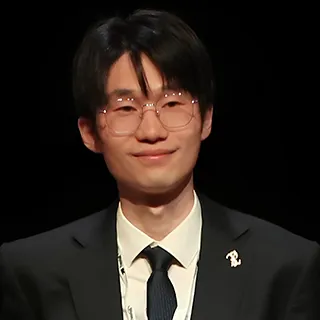
Huazhi Dong
University of Edinburgh
Huazhi Dong is a PhD student in the Institute for Imaging, Data and Communications School of Engineering at the University of Edinburgh.
His research focuses on the intersection of tactile sensing, flexible electronics, and robotic perception, aiming to achieve whole-body awareness in intelligent robots by advancing multi-modal e-skins that integrate tactile and proprioceptive sensing capabilities, therefore allowing these robots to respond to their environment with life-like sensitivity and accuracy.
The ultimate vision is to enable autonomous robotic systems in high-stakes, real-world scenarios.
The Hudswell International Research Scholarship will provide valuable support for Huazhi’s ongoing work. This recognition not only helps promote his research globally but also helps him to contribute to cutting-edge advancements in soft robotics perception.
Leslie H Paddle Scholarship
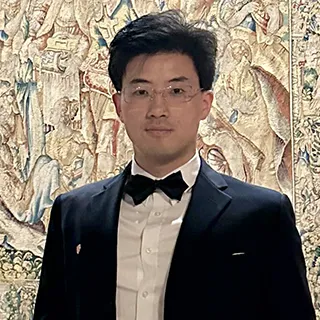
Qi Wang
University of Cambridge
Qi Wang is a PhD candidate in the Applied Superconductivity Group in the Department of Engineering at the University of Cambridge.
His PhD research focuses on developing more efficient superconducting machines by using trapped-field magnets as rotor replacements. By optimising these systems for electric aircraft and marine propulsion, his work provides critical insights into loss analysis, structural design, and performance enhancement of high-temperature superconducting rotors. These advancements directly contribute to cleaner energy solutions in the transportation sector.
Looking ahead, he aims to overcome the technical challenges limiting widespread adoption of superconducting machines.
The Leslie H Paddle Scholarship would be instrumental in accelerating this work. It would enable Qi to expand his research output, disseminate findings at key conferences, and forge collaborations with leading labs.
IET Postgraduate Prize
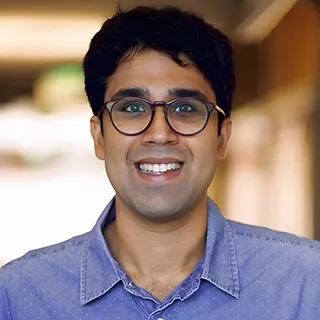
Pavan Inguva
Massachusetts Institute of Technology, USA
Pavan is a PhD candidate in the Department of Chemical Engineering at the Massachusetts Institute of Technology, where he applies systems engineering principles to solve advanced biomanufacturing challenges.
Pavan is passionate about improving the quality and accessibility of novel biotherapeutic medicines. He is developing computational models to study and optimise their production to reduce costs and improve product quality. He is a part of the MIT Center for Continuous mRNA Manufacturing where he is developing models for various steps in production of nucleic acid therapeutics. Most notably, he proposed the first framework for mechanistically modeling the formation of lipid nanoparticles which are the delivery platform of choice for nucleic acids.
In developing and deploying these models, Pavan has also contributed significantly to many ancillary areas such as advanced thermodynamic modeling of complex species.
The IET Postgraduate Prize will help Pavan by supporting his research and outreach work, enabling his attendance at industry-focused events to better understand the challenges faced in biomanufacturing and developing digital resources for facilitating chemical engineering education.
IET Postgraduate Prize
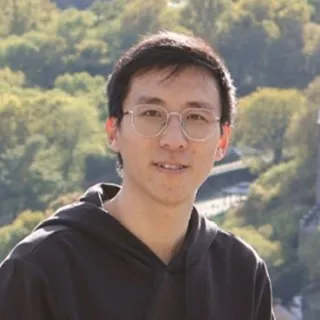
Wen Shi
Johns Hopkins University School of Medicine, USA
Wen Shi is a PhD candidate in the Department of Biomedical Engineering at the Johns Hopkins University School of Medicine, USA.
His current research focuses on developing advanced magnetic resonance imaging to investigate the human brain physiology, particularly venous hemodynamics and blood-brain barrier permeability, and exploring their clinical applications in various neurological disorders. One of his notable achievements includes the development of a non-contrast MRI technique known as VICTR which enables measurement of venous transit time in humans within a clinically feasible setting.
Wen is contributing to the advancement of medical imaging tools that improve the ability to evaluate neurovascular conditions. His work provides potential imaging markers for neurovascular diseases, thereby facilitating earlier detection and more precise treatment planning.
The IET Postgraduate Prize will motivate his future work in advocating the advanced medical imaging technique into clinical practice and promoting their disseminations and adoptions across healthcare systems worldwide.
IET Postgraduate Prize
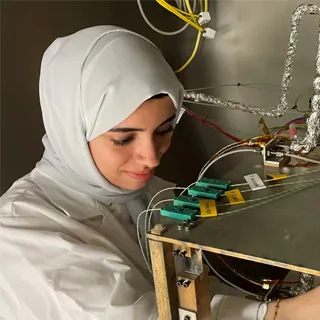
Hamda Al-Ali
Imperial College, London
Hamda Al-Ali is a PhD candidate in the Imperial Plasma Propulsion group in the Department of Aeronautics at Imperial College, London.
Hamda’s research focuses on design and experimental characterisation of a novel fusion inspired plasma propulsion system for in-space transportation. The Spherical Tokamak Thruster is a MW class thruster that operates in a pulsed mode, combining principles of nuclear fusion devices and electric space propulsion in which it harnesses a heated plasma, controlled by magnetic fields, to produce thrust.
The thruster is expected to be 10 to 100 times more fuel efficient than conventional chemical thrusters. This advancement holds significant potential for deep space exploration, offering improved propellant efficiency, extended thruster operational lifetime, and greater mission flexibility.
The IET Postgraduate Prize will enable Hamda to conduct further testing using plasma diagnostics, enhancing the depth of her research and providing valuable insights into the plasma properties of her novel design.
IET Postgraduate Prize
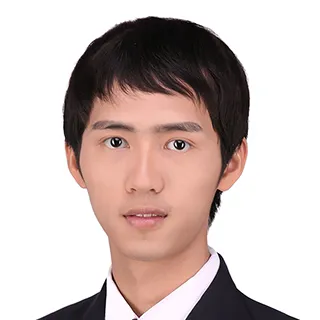
Yikang Xiao
Tsinghua University, China
Yikang Xiao is a PhD candidate in the Department of Electrical Engineering at Tsinghua University, Beijing. His research interests include simulation of power electronics systems, modeling and optimized control of Si IGBTs and SiC MOSFETs.
During his PhD studies, Yikang developed a piecewise analytical transient model, and a multi-timescale coupled simulation framework that resolve stiffness and divergence issues in multi-timescale power electronics simulations. This work provides a basic theory and simulation tool for power electronic engineers to better understand the characteristics and behaviors of the emerging wide band gap power devices in large scale power electronic systems. Yikang further developed a low-cost, high-density, flexible commutation structure for SiC based high-power converter, achieving over 70% switching loss reduction.
Receiving the IET Postgraduate Prize will enable Yikang to expand his work to consider system-level design and optimisation of the commutation structure, enhancing the practical value of his work.
